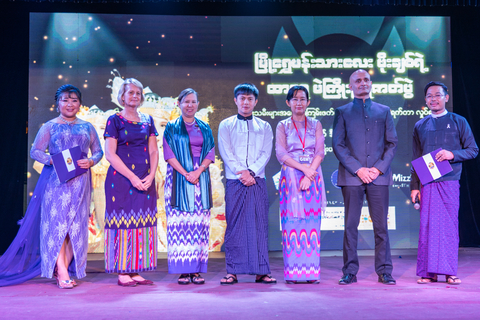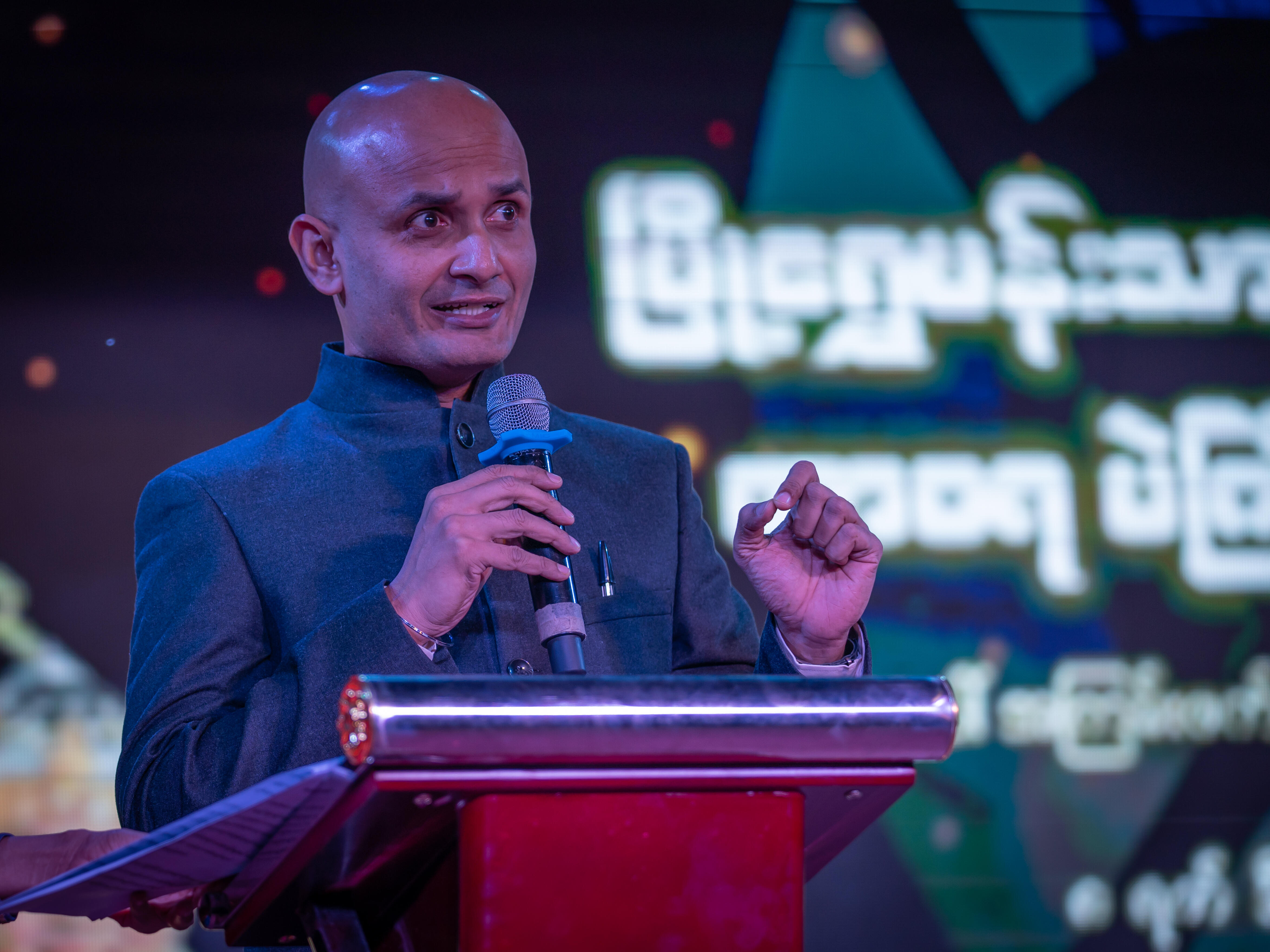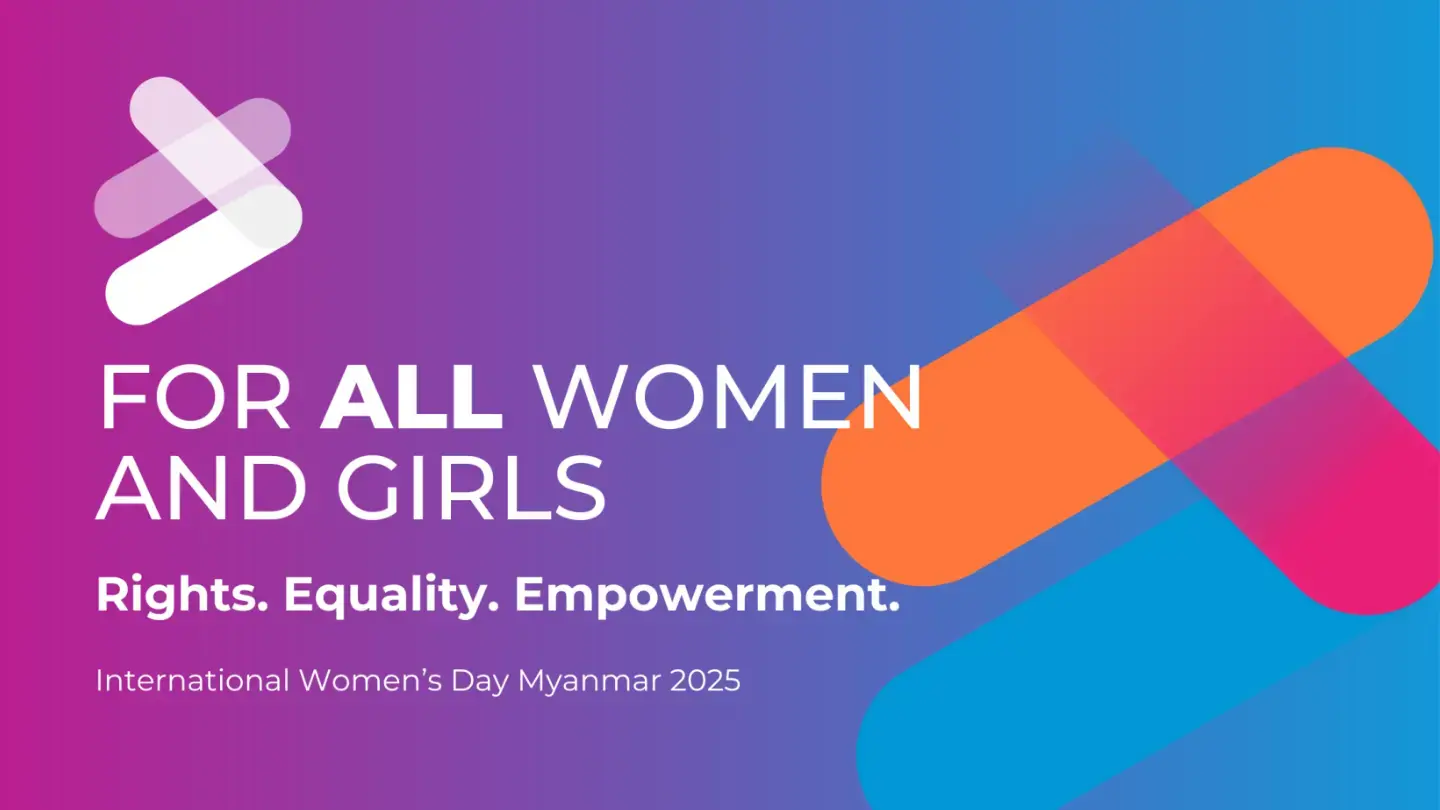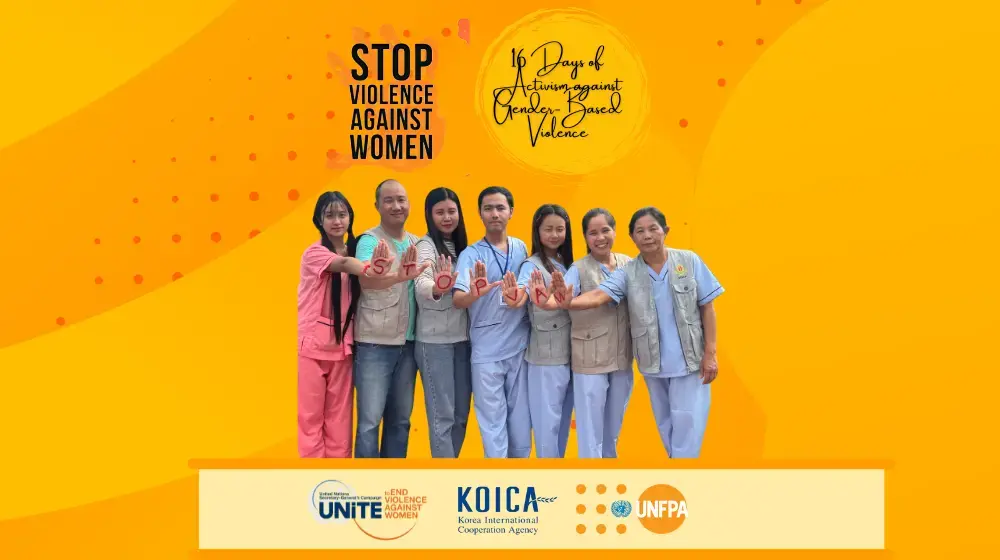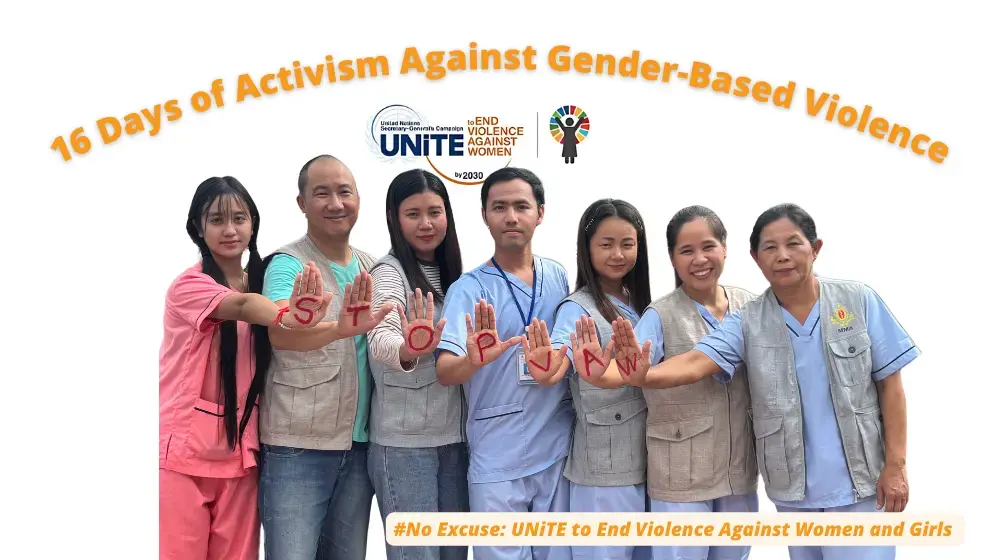YANGON, Myanmar – On 8 December 2019, “Forever White Ribbon Event” was held at Kandawgyi Park in Yangon for awareness raising of 16 Days of Activism against Gender-based Violence. The event was organized by Gender Equality Network (GEN) with the support of UNFPA and LIFT Fund in Myanmar.
This public awareness event was attended by Dr. San San Aye, Director General of Department of Social Welfare, Ministry of Social Welfare, Relief and Resettlement; Ms. Nwe Zin Win, Co-chair of Gender Equality Network; Ms. Katy Webley, Director of LIFT Fund; Mr. Ramanathan Balakrishnan, UNFPA Representative for Myanmar. Also in attendance were representatives from government departments, civil society organizations, international development partners, UN agencies, local media and hundreds of people from the communities. With campaign awareness booth displays by respective gender organizations, Myanmar traditional dance performance by popular artist Myot Shwe Mantharlay Pho Chit was presented to advocate the key messages of 16 Days of Activism.
Speech delivered by Mr. Ramanathan Balakrishnan, UNFPA Representative for Myanmar, on the occasion of 16 Days of Activism against Gender Based Violence
Forever White Ribbon Event
Dr. San San Aye, Director-General, Department of Social Welfare
Daw Nwe Zin Win, Co-chair of Gender Equality Network
Colleagues, Friends, Ladies and Gentlemen;
Thank you for giving me this opportunity to deliver an opening remark on the occasion of today’s Forever White Ribbon event during the 16 days of activism against Gender-based Violence. As you may know, the themes for this year’s 16 days campaign in Myanmar are “Generation Equality: Stands Against Rape” and “Prevent Violence against Women by the Law”.
Globally, one in three women experiences violence at some point in their lives, often at the hands of someone close to her –father, husband, boyfriend, uncle, supervisor or colleague. Myanmar is not an exception, and gender-based violence is pervasive across the country, and the risks increase especially in the humanitarian contexts, particularly for minority communities.
Gender-based violence is a violation of human rights in itself and directly affects the ability of women and girls to enjoy their rights. Violence against women and girls prevent them from participating in public life and in the political, social and economic development of the country.
Everyone has a right to live free of violence and in dignity.
Worldwide, the topic of sexual violence is usually considered culturally sensitive to discuss in public, particularly because prejudices against survivors of sexual violence run deep. Survivors of sexual violence are blamed for being abused, and are stigmatized as morally loose women, so they keep silence. No culture and no religion can be used to justify violence against women and girls.
In order to break this silence, there are many things we can do –as an individual, as a family member, as a friend, as a community member, and as a responsible member of society.
When you hear or see any sign of violence against women and girls, you could let them know that someone is paying attention on what is going on, provide any support which may be required by women and girls suffering from violence, or alert the law enforcement authority.
And when a women or girl survivor speaks out or complains against her perpetrator, respect her privacy; encourage her to break the silence; acknowledge her choice, admire her courage!
Ending impunity requires strong legal and justice system. We can raise our voices, advocating for the need of enacting the Protection and Prevention of Violence against Women Law in compliance with the Convention on the Elimination of All Forms of Discrimination Against Women. This is crucial to be able to hold perpetrators of violence accountable.
The important thing is that we see violence against women and girls as a social issue and not just as a women’s issue.
One of the biggest mistakes that we as a society can do is to look at violence against women as primarily a protection issue. It is not! It is a rights issue! It is an issue of recognising the women’s rights and treating her with respect inside the family and outside.
When we treat it as just a protection issue, we end up imposing norms on women that restrict their freedom;
Women and girls should be free to have a happy life and still be free from violence; they should be able to go out with their friends and still be free from violence; they should be able to dress according to their own tastes and still be free from violence; they should be able to choose their partners; have a relationship and still be free from violence...
In this respect, I am very proud of the partnership which UNFPA has in addressing gender-based violence. We work closely with the Government partners, especially Department of Social Welfare, to strengthen policy framework to prevent and respond to gender-based violence. We also work with civil society partners, such as GEN, in the areas of advocacy and service delivery for women and girls who are at the risk of gender-based violence.
As a leading UN agency for gender-based violence prevention and response, I would like to reiterate our commitment to continue supporting the Government and civil society partners to realize advancement of gender equality, the rights and empowerment of women and girls and elimination of all forms of gender-based violence.
Together, we can build a future Myanmar free from violence. Through collective commitment, I strongly believe that we will be able to bring about real changes to prevent violence against women and girls.
Thank you.
